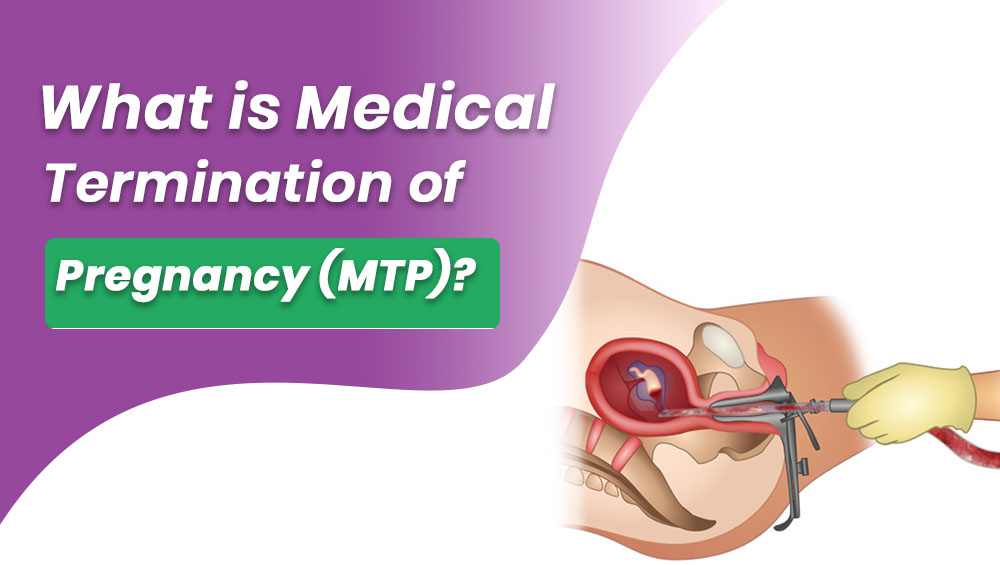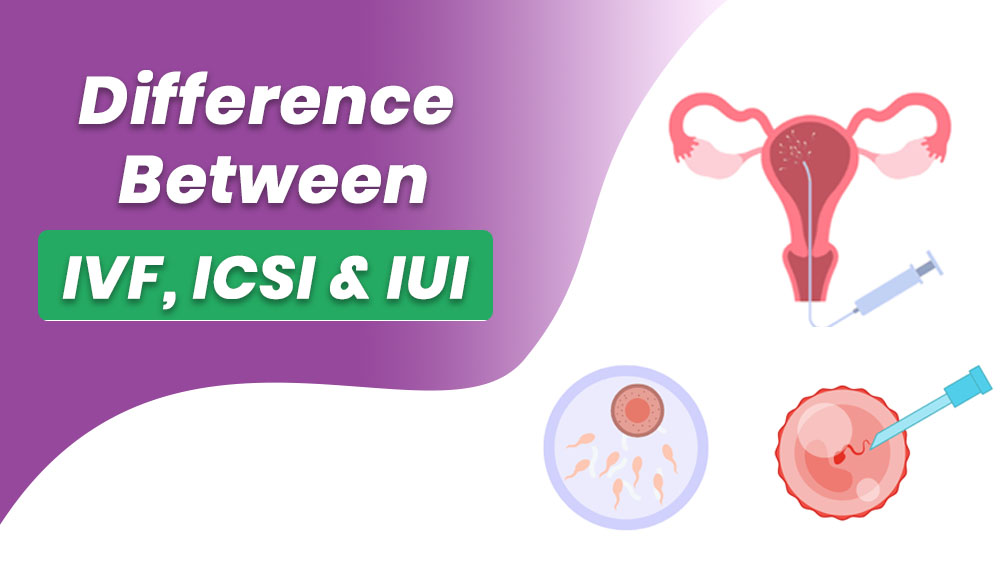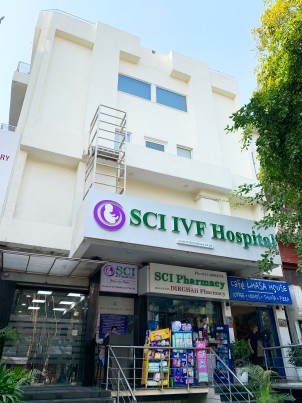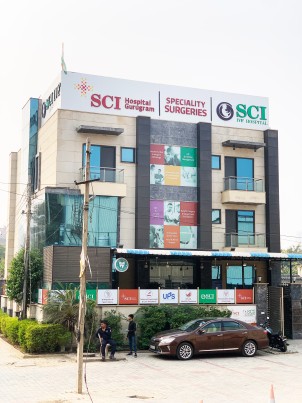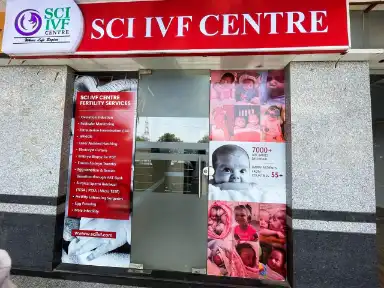Common Causes Of Male Infertility & How To Address Them
Infertility is not just a woman’s issue—male infertility plays a role in nearly 50% of cases where couples struggle to conceive. However, it is usually unrecognized or undiagnosed because of the stigma or the ignorance. When you are unable to conceive a baby, although you have been attempting to, it is important that you first get to know about the potential male-related reasons that prevent it. This blog shall take you through the common causes of male infertility, as well as the solutions which can be found in contemporary reproductive medicine, such as provided in the expertise of SCI IVF Hospital.
Most Common Causes of Male Infertility
The following are the most frequent causes of male infertility, to make it easier you, read through and after that we will see the diagnosis of each condition and available treatment. So, here we go :-
1. Sperm quality: quantity, motility and morphology
Most of the male infertility issues are related to problems in sperm production and functionality:
Low sperm count, or oligospermia: In this condition, the male produces less than 15 million sperms per milliliter and this decreases chances of fertilization.
Asthenozoospermia (poor motility): This is a situation in which the male has Sperms that cannot swim well and usually fail to reach the egg.
Teratozoospermia (abnormal morphology):This is a condition whereby a male has defective sperms that cannot fuse with the egg properly.
Cumulatively, a combination of these difficulties can often manifest itself as OAT syndrome, i.e. low number, bad motility, negative morphology, which is experienced by one-fourth to one-half of the infertile men.
2. Genetic and Hormonal Disease
There are biological inabilities to some men:
- Azoospermia: An absence of sperm in semen. Major offenders include genetic reasons, which could include the Y‑chromosome microdeletions, particularly in the AZF region, and hormonal disorders or testicular insufficiency.
- Hormonal problems: Alteration in production of testosterone, LH or FSH- this may because of pituitary disease, thyroid disease or hypogonadism and may affect the production of sperm.
When no obvious cause is revealed by basic semen analysis, genetic lab testing and hormonal blood studies are important.
3. Structural/ Functional Blocks
Infertility may be caused by physical difficulties that lead to failure of sperms to be ejaculated even in good-quality sperm:
- Varicoceles: The swollen veins behind testicles causing increase in temperature and sperm production difficulties.
- Obstructions: Vas deferens (by surgery or by congenital) or ejaculatory duct blockage. Retrograde ejaculation (whereas semen gets into the bladder), and immune responses to sperms can also be the causes of successful conception failure.
4. These include infections and inflammatory conditions
Sperm or tubal structure within testicles may be damaged by urogenital infections such as prostatitis and epididymitis and STIs (e.g. chlamydia, tuberculosis).
Adult mumps orchitis can have irreparable consequences on testicular activity.
5. Lifestyle and Ecological Factors
There are numerous opportunities of fertility hazard within the sphere of modern life:
- Obesity: An excess amount of adipose tissue leads to hormonal imbalances and elevates the temperature of the scrotum, as well as causing damage to the DNA of the sperm cells.
- Smoking and alcohol and drugs: Nicotine, steroids, marijuana, cocaine all decrease sperm quality and dampen production.
- Heat exposure: The use of a sauna or close-fitting garments or siting laptop computers on lap can raise scrotal temperature and destroy sperm production.
- Environmental toxins: Spermatogenesis has been associated with pesticides, heavy metals, solvents, microplastic.
6. Sexual or Ejaculatory dysfunction
Other complications that can inhibit fertility are problems of having difficulties during sex or in ejaculating:
- Impotence or rapid ejaculation does not enable timely ejaculation to occur. May be the result of diabetes, nerve degradation, mental stress or drug side-effects.
- Another problem is retrograde ejaculation in which sperms flow into the bladder rather than passing out through the penis. There are instances when it may be managed by drugs; in other instances, assistance by any other means is required.
Diagnostic Strategy: Discovering the Cause
The first step into effective treatment is understanding of cause. General diagnostic instruments can be:
- Semen analysis: Checks sperm count, sperm motility, sperm morphology, sperm volume, sperm viscosity.
- Hormonal examination: Checks level of testosterone, FSH, LH, prolactin.
- Genetic diagnostics: To identify microdeletions or chromosomal diseases in particular in the case of azoospermia or severe oligozoospermia.
- Ultrasound: Detects varicoceles, obstacles, blockages, or structural abnormalities/flaws.
- Special tests: Sperm DNA fragmentation, immune associated or testicular biopsy in some cases.
Male infertility Treatment and Management Options
A combination of medical, surgical, and assisted reproductive treatments can usually be used to deal with male infertility successfully. Treatment is determined by cause, severity and desires of the couple regarding fertility. The following is a description of the effective and common strategies:
1. Medical Lifestyle Interventions
Minor changes to their lifestyles can help a great deal in sperm health to many men. Doctors would usually prescribe:
- Increase in all-around diet and nutrition
- Stop smoking, alcohol or recreational drugs
- Dealing with stress and getting quality sleep
- Avoiding the extended heat exposure (such as hot tubs or tight clothing), etc.
- Exercise is a good way to maintain a healthy weight
In case of the presence of hormonal imbalances, hormone therapy can be prescribed to correct the normal levels of reproductive hormones. Where there is an infection, inflammation of the genitals, a course of antibiotics, or anti-inflammatory will aid in clearing the problem and leading to fertility.
2. Surgical Interventions
In some cases of physical interruption or anatomical problems, surgery may be required:
- Varicoelectomy is a procedure intended to rectify swollen and enlarged scrotal veins (varicocele) to improve sperm production and sperm quality.
- Blocked vas deferens /ejaculatory ducts could be corrected by surgical intervention which allows adequate flow of sperm.
- When ejaculation fails to go out through the penis (retrograde ejaculation) due to passage of semen into the bladder, some surgical or medical procedures may be used to restore ejaculation.
3. Assisted Reproductive Technologies (ART)
In cases when conception is not achievable or takes excess time, ART procedures offer viable solutions:
- Intrauterine Insemination (IUI): This is best used when the sperm count is slightly low and there exist minor motility problems. The sperm is placed directly into the uterus of the woman in order to enable fertilization. It is one of the less invasive and minimal treatment that are commonly used as an initial treatment of couples with infertility issues.
- Intracellular Sperm Injection (ICSI): Intracellular Sperm Injection (ICSI) is an excellent technology where one sperm is injected directly into an egg. This can be applied especially when the sperm count is less/with poor motility or abnormal shapes of sperm.
When sperm exists without the semen (azoospermia) methods of retrieving sperm through surgery include:
- Testicular sperm extraction (TESA).
- The Microsurgical Epididymal Sperm Aspiration (MESA)
TESA & MESA are employed after removal of viable sperm directly out of the testes or epididymis to be applied in IVF or ICSI.
4. Emerging Innovations
If no such procedures are possible, or where traditional methods of severe male infertility are exhausted, recent developments in reproductive technology, such as artificial intelligence-based sperm selection methods, are proving useful. The new technologies are designed to accurately distinguish the healthiest sperm, thereby increasing the likelihood of a healthy pregnancy.
Psychological and Emotional Concerns
Psychological health and emotional wellbeing can be a cost in the case of male infertility. One would show signs of inadequacy, anxiety, depression, or stress in relationship. Support groups, sex therapy and counseling are essential to secure emotional well being during this process, not only to you but also to your partner.
Conclusion
There is no absolute dead end to male infertility condition as it is a treatable medical condition enabled by proper care and opportune action. Regardless of the problem in the quality of sperm, hormonal imbalance, structural issues, and behavioral factors, a correct diagnosis is the key to choosing a solution.
At SCI IVF Hospital, we integrate sophisticated diagnostics with a plan of individual treatment solutions --inclusive of mere lifestyle alterations to the most thriving reproductive technologies such as IUI and ICSI. Our staff will accompany you on this journey with compassion and professionalism, taking you a step closer to the only thing that truly matters: creating your family. Schedule an appointment with our professionals today.



